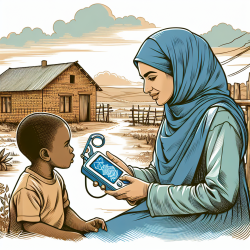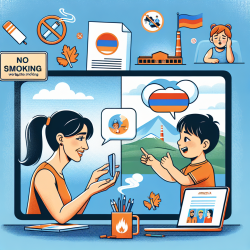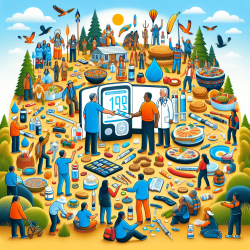Introduction
The COVID-19 pandemic has profoundly impacted various aspects of life, including food access in remote areas. A recent study titled ‘Remoteness was a blessing, but also a potential downfall’: traditional/subsistence and store-bought food access in remote Alaska during the COVID-19 pandemic provides valuable insights into how remote Alaskan communities navigated these challenges. As practitioners providing online therapy services to schools, we can draw parallels from these findings to enhance our practice, particularly in understanding and addressing the unique needs of remote communities.
Understanding the Research
The study employed a strengths-based approach to assess food access in remote Alaska during the pandemic. It highlighted both the vulnerabilities and protective factors of remoteness in terms of food access. Key informant interviews and surveys revealed significant negative impacts on store-bought food access, while traditional subsistence practices served as a coping mechanism.
Key findings include:
- Travel and transportation restrictions severely impacted store-bought food access.
- Local subsistence activities, such as hunting and fishing, provided a buffer against food shortages.
- Community support, including food sharing, played a crucial role in mitigating food insecurity.
Applying Insights to Online Therapy
As online therapy practitioners, understanding the dynamics of remote communities can enhance our service delivery. Here are some actionable insights:
- Adaptability: Just as Alaskan communities adapted by relying on traditional food sources, therapists should be flexible in their approaches, tailoring interventions to the unique cultural and environmental contexts of remote clients.
- Community Engagement: Building strong community networks can enhance therapy outcomes. Encourage collaboration with local leaders and stakeholders to better understand and address community-specific challenges.
- Resourcefulness: Utilize available technology and resources creatively to overcome logistical challenges, similar to how Alaskan communities leveraged local food resources.
Encouraging Further Research
This study underscores the importance of understanding local contexts and the resilience of communities in the face of challenges. Practitioners are encouraged to delve deeper into the specific needs of the communities they serve, conducting further research where necessary to inform practice.
Conclusion
The experiences of remote Alaskan communities during the COVID-19 pandemic offer valuable lessons for online therapy practitioners. By adopting a flexible, community-engaged, and resourceful approach, we can better serve remote populations and improve therapy outcomes. To read the original research paper, please follow this link: ‘Remoteness was a blessing, but also a potential downfall’: traditional/subsistence and store-bought food access in remote Alaska during the COVID-19 pandemic.










